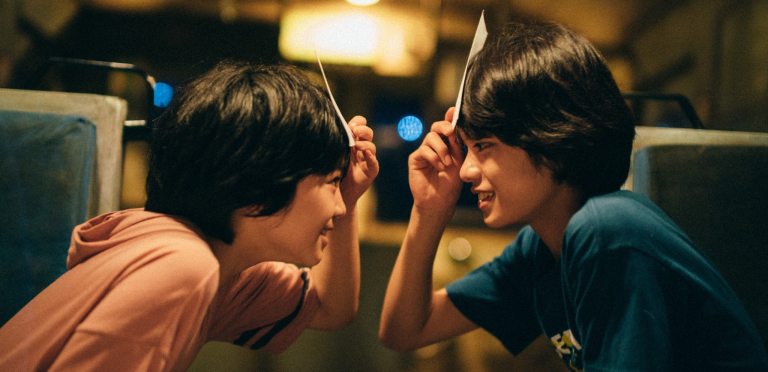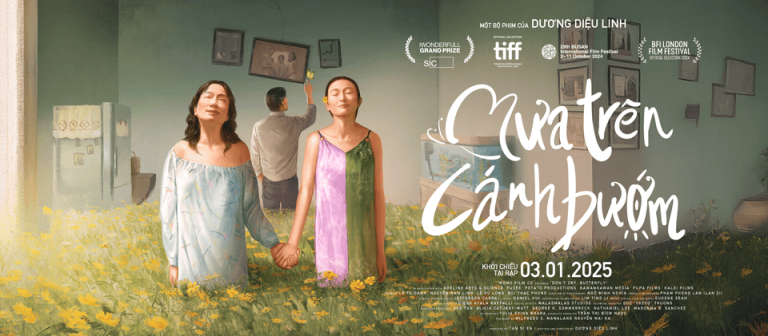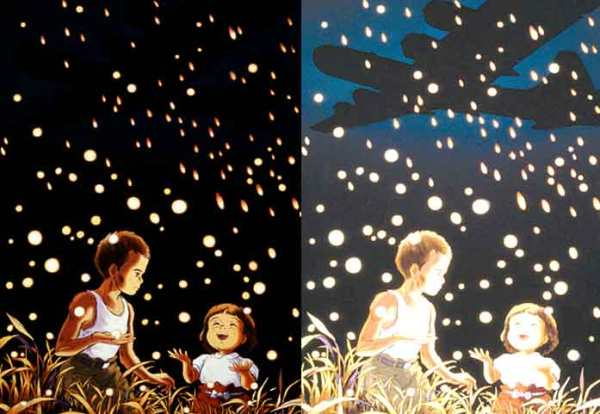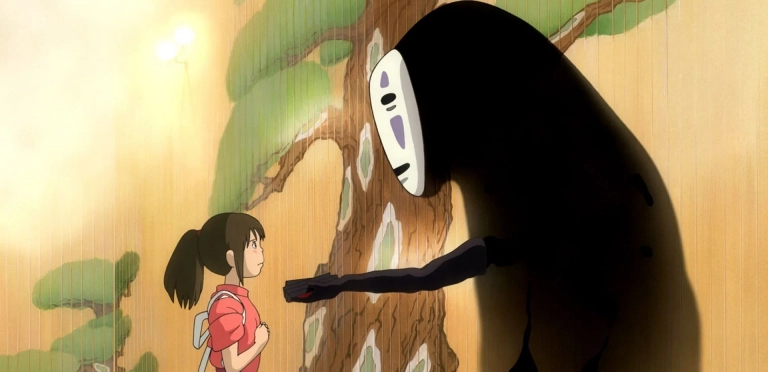In recent years, South Korean cinema has gained significant ground on the international stage, with major victories at Cannes such as Parasite and Decision to Leave. But prior to that, Japan held a similar prestige. Japanese cinema has long been revered by international film festivals, and in 2023, it made a powerful return with Monster (original title: Kaibutsu) by Hirokazu Koreeda, director of Shoplifters. Monster was nominated for the Palme d’Or and took home two awards: Best Screenplay and the Queer Palm. The film reminded me of other heavy Japanese social dramas like Confessions (Kokuhaku) and All About Lily Chou-Chou.
Warning: This review contains spoilers
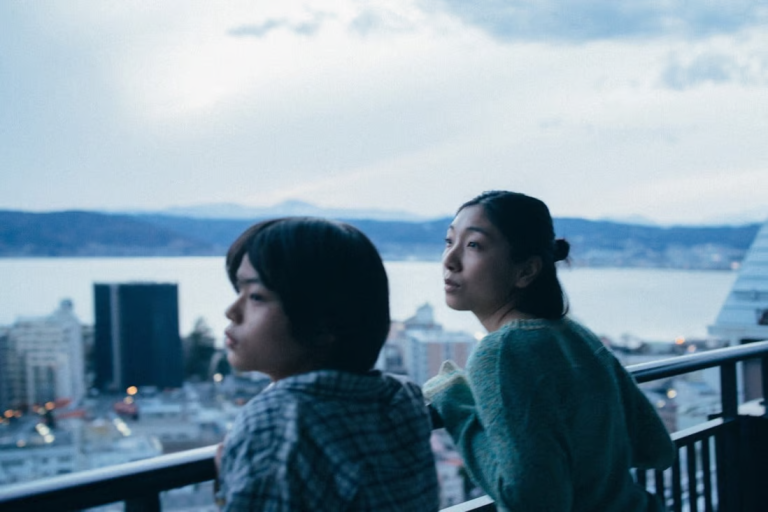
The film begins with a bar fire in rural Japan, an event that serves as the focal point through various character perspectives. Each POV begins from this moment of disaster. From their upstairs window, mother and son Saori and Minato Mugino watch the fire—ushering in the central narrative. Saori is a single mother raising her son Minato after her husband’s death. Initially, their life appears peaceful, full of care and warmth. But things take a turn when Minato, now entering adolescence, begins showing troubling signs: venturing alone into the forest, leaping from his mother’s moving car, and cryptically saying, “My brain has been replaced by a pig’s brain.”
Investigating further, Saori learns that a teacher named Hori allegedly abused Minato—punching him, twisting his arm, and telling him the pig brain line. Furious, Saori confronts the school, only to be met with scripted apologies and performative remorse. This sequence sharply critiques Japan’s culture of superficial apology and conformity, echoing the existential unease of a Franz Kafka story.
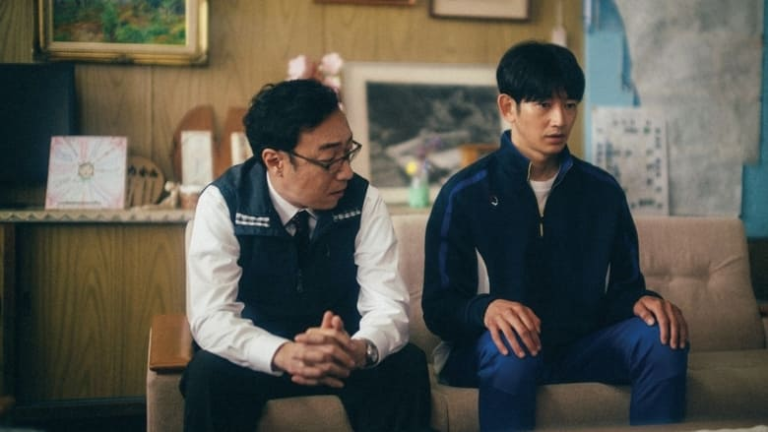
But the story isn’t that simple. Screenwriter Yuji Sakamoto masterfully peels back narrative layers, creating a “Rashomon”-style structure where multiple unreliable narrators reveal contrasting truths. Much like Akutagawa’s short story In a Grove or Kurosawa’s film Rashomon, Monster invites us to question perception, truth, and blame. Misunderstandings and half-truths snowball into a tragic storm that affects everyone—Minato, Hori, even bystanders. We search for the “monster,” the real villain—but find only flawed humans projecting guilt onto others.
Initially painted as a monster, Mr. Hori is later revealed to be a misunderstood victim. We empathize with him—until we see Minato’s POV and empathize with the child too. The brilliance of Monster lies in this duality: nearly every “monster” is also deeply human.

The Radiant Yori Hoshikawa
Midway through the film, a key character emerges—Yori Hoshikawa, Minato’s classmate. Initially believed to be a bullying victim, it’s only in the latter half that Yori’s true role unfolds. Yori is a vibrant, cheerful child, always polite and full of life—even though he’s arguably the true victim of the story. Bullied for his effeminate demeanor and queerness, Yori is rejected by peers, and even by his abusive father, who labels him a “monster.”
Yori’s only refuge is Minato, who treats him kindly. Whether Minato himself is queer remains ambiguous, but it’s clear he treasures Yori. However, peer pressure compels Minato to participate in mocking Yori to appear “normal.” When Yori confesses affection through a hug, Minato is visibly shaken. The next day, the boys escalate their bullying, and Minato is forced into a humiliating situation—accused of being gay, ridiculed as “disgusting.” This leads to an emotional breakdown and the beginning of Minato’s psychological unraveling.
This reminded me of Moonlight, where a boy punches his love interest to mask his feelings. Similarly, Minato lashes out—hurting someone he truly cares for. It’s heartbreaking. In my theater, many viewers cried, and I was close to tears myself.
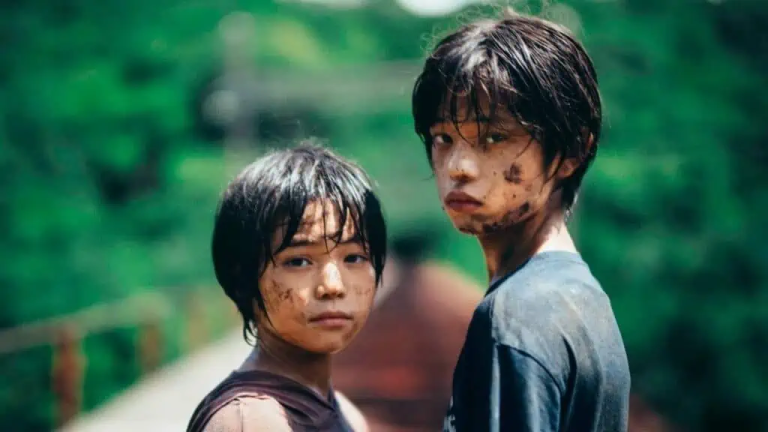
The Beauty of Innocence
Amid the darkness, moments of joy shine when Minato and Yori are together. These two outcasts find solace in each other. They escape into a forest, hide out in an abandoned train car, and create a secret world filled with laughter and games. Their bond isn’t just youthful innocence—it’s a defiant act of joy in a world that fails to understand them. These scenes bring warmth to an otherwise somber narrative.
One poignant image shows them climbing an old playground slide, crawling into a cage-like space—symbolizing their entrapment in a society that doesn’t accept them.
Despite his cheerful demeanor, Yori’s pain is undeniable. By the end, we see him teeter on the edge of suicide. For a child barely eight years old, that’s devastating. And yet, one person brings him back from the brink: Minato.
Reflections and Comparisons
Monster resonates with themes explored in Confessions and All About Lily Chou-Chou. Like those films, it tackles school violence, domestic abuse, and emotional trauma among youth. But unlike those darker tales, Monster offers hope—illuminated by the friendship and love between two damaged children.

An Ambiguous Ending
The film ends with an open scene: Minato and Yori playing in a sunlit forest after the storm. It feels like a happy ending—but is it? Just prior, we saw them buried under debris from a landslide. Despite efforts to rescue them, they were never found. Perhaps this forest scene is a dream, or a vision of peace in death. It’s reminiscent of Inception—a conclusion left to viewer interpretation.
Ultimately, the ending is yours to decide: a hopeful rebirth or a tragic farewell. So, which version do you believe in?

